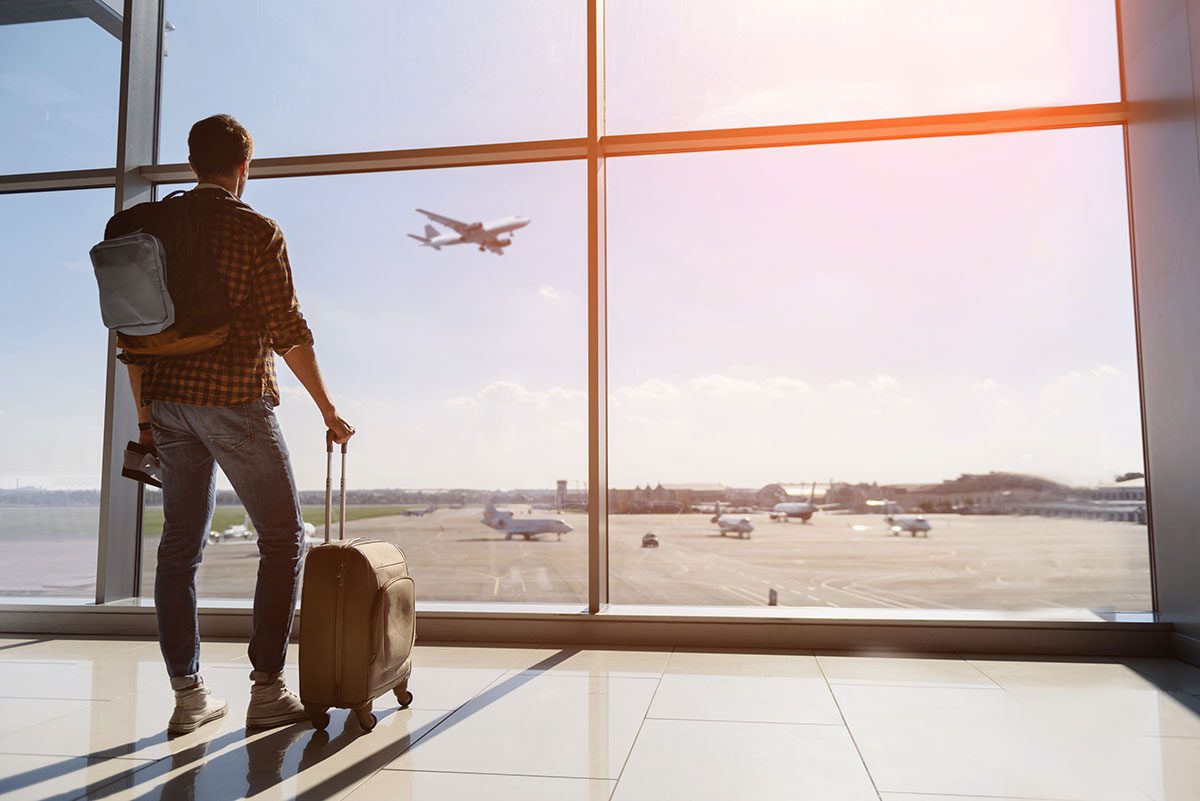It’s a brand new year, and for business owners, that means prepping new strategies based on forecasted trends. If you’re in the travel industry, this is now more important than ever since the pandemic has been so up-and-down with recommendations on travel, and consumer opinions have been along for the rollercoaster ride.
Keeping up with shifts in the travel industry will help ensure that your business can navigate the pandemic, obtain more bookings when travel goes back to normal, fight the tough competition, and drive up your ROI.
So let’s welcome the new year with an in-depth look at the top ten digital advertising trends the travel industry will see in 2022.
1. Artificial Intelligence
Last year, more and more travel companies started incorporating artificial intelligence or AI-based applications. Customer service is among the most important areas for most businesses, and travel is no different (especially now!).
The inclusion of AI-based chatbots can remarkably scale up customer service response times and offer clients 24/7 access to customer representatives, even when physical staff members are not available. This means that if you keep getting the same question repeatedly about travel restrictions to a specific country, for example, you can program your responses into an AI chatbot.
Artificial intelligence is used extensively in the travel market, from AI travel assistants to algorithms that help recommend flights, personalize offers, and even utilize dynamic pricing.
For example, travel companies such as Discover Corps use the Drift chatbot to assist customers in answering their questions about different types of vacations.
2. Augmented Reality
Augmented reality (AR) is used across various platforms, especially within the entertainment industry. AR provides an interactive experience of a real-world environment where real-world objects are enhanced by computer-generated perceptual information.
Travel companies can also use AR to enhance real-world settings. For example, a review app might display customer reviews for a hotel when a phone is pointed at the logo. In addition, some hotels and resorts provide a companion app with wall maps and additional information.
Think outside the box; a key component of traveling is adventure, so why not be adventurous with your travel business?
See an example highlighted recently on Forbes.
3. Customer Experience Marketing
Creating and delivering customer-centric experiences and campaigns places your brand a cut above the competition; it gives your target audience a concrete reason to stick with your services. In addition, you will want to create an emotional connection between your brand and your customers and put them at the center of your marketing strategy.
One of the most effective ways to do this is to deliver a personalized customer experience. An example of customer personalization is the use of aggregating data software. For instance, The Mandarin Oriental Hotel Group has designated SevenRooms to handle their global reservation, table management, and guest engagement platform software.
As a result, SevenRooms boasts the ability to help business owners “acquire, engage, and retain” customers through their ability to personalize the experience of every guest who comes to your website. This makes their online journey seamless and without hassle, ensuring they’ll become repeat customers.
Unsurprisingly, this is a big topic, and this strategy takes quite a bit of planning to implement. You can learn more about data aggregating software here.
4. Influencer Marketing
With the rise of social media personalities and their impact on product popularity, travel companies have started collaborating with these influencers to target their followers.
It works because the audience trusts the influencers, and so they are more likely to trust the content they promote on their platforms such as Youtube or Instagram. Images and videos are ideal for travel influencer marketing because the followers can better experience travel through the eyes of the personality they’re following.
One of our favorites is The Bucket List Family, so check out their page to see how they accept sponsorships and sell specific travel products and experiences.
5. Personalized Marketing
Among the most significant trends within the travel industry is the personalized travel experience. Recent market research shows that tourists will be more loyal to a provider who personalizes their travel experience.
For example, Hilton Hotels offers a virtual guide as part of their Hilton Honors app, which accompanies guests during their stays. The app provides suggestions, directions, and activities and resolves common concerns.
Guests can also use the app to check-in, as a room key, and control the room’s devices. Aside from that, app users can collect points that they can share or redeem for perks and gifts. In addition, personalized marketing can include AI-based recommendations and targeted text messages and emails.
6. Review Marketing
It is quite common in the tourism industry for customers to rely on reviews when looking for good deals and throughout the decision-making process. Websites and services like Hotels.com, Booking.com, Trip Advisor, and Yelp provide reviews for hotels, airlines, tours, and services. Using reviews as part of your marketing strategy will likely give you favorable results among your target audience.
As a marketer, you want to ensure that your profiles on these travel platforms are well maintained with honest reviews, thorough descriptions, accurate images, and prices.
Take the time to update important information and photos on each review platform. You also need enough positive reviews to outweigh any negative ones. Additionally, you always want to encourage your customers to leave reviews after every transaction and do everything you can to mitigate problems so that the reviews are positive.
Below is an example of a travel review website, GoOverseas – you can search by program and see reviews (left), or you can search by review to find a program (right).
7. TikTok Marketing
Forward-thinking travel marketers shouldn’t sleep on what TikTok can offer.
With over 1 billion monthly active users, this newer social media platform allows your brand to stand out through video marketing, something many people are craving right amid the pandemic. Video stories and tours on TikTok have the potential to go viral, which means tons of free advertising for your business.
If you already use Instagram reels, you can repurpose your reels on TikTok to reach a larger audience with minimal effort.
Learn more about how to jumpstart a TikTok strategy here.
8. User-Generated Content
User-generated content (UGC) is any form of content, such as images, videos, text, and audio, posted by users on online platforms like social media. It is content that consumers create to spread information about online products or the agencies that market them. You can factor in UGC as part of your travel marketing strategy to build brand authenticity and customer loyalty.
A restaurant can encourage its customers to upload images and reviews of their food to their website while using a common hashtag.
Hotels or resorts can do the same with their restaurants and spas. Some locations even provide a digital photo booth that automatically adds their brand or relevant hashtag to every photo.
Brands can also encourage user-generated content by holding contests on social media that prompt followers to upload photos and videos in exchange for the chance to win a prize.
9. Virtual Reality Experiences
Virtual reality (VR) experiences commonly require a VR headset, but more and more brands are starting to use panorama and 360-degree videos. As a result, VR experiences are becoming increasingly popular across various sectors in the travel industry.
For example, many hotels and resorts now use VR tours to showcase their rooms and amenities, while many travel agencies also offer VR videos of tourist attractions.
Below is an example of Universal Orlando utilizing 360-degree video to show off their new Harry Potter ride:
10. Voice Search
With smart home devices like Siri, Alexa, and Google Home becoming more mainstream, you will want to include voice search as part of your travel marketing strategy. More and more travelers use voice search to make hotel, flight, and transport bookings.
Aside from providing this type of service, you can also optimize your brand’s web content to capitalize on voice searches, one of the top search behavior changes marketers expect to see in 2022.
Final Thoughts
Have you started to notice any of these trends amongst your competitors? Don’t fall behind; pick a couple to tackle today and make sure your travel business stays ahead of the game during a very uncertain time for the travel industry!



